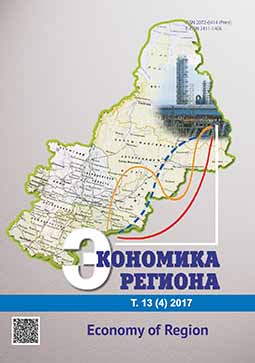Электрификация как драйвер развития «умных городов»
Electrification as a Development Driver for “Smart Cities”
Author(s): Leonid Davidovich Gitelman, Mikhail Viktorovich KozhevnikovSubject(s): Economy
Published by: Институт экономики Уральского отделения Российской академии наук
Keywords: electrification; smart city; energy system; smart grids; electricity-powered transport; electric car; smart home; small-scale power generation; demand-side management; differentiated tariffs;
Summary/Abstract: The increasing electrification of the transport infrastructure, residential and commercial sectors of a “smart city” induces structural changes in energy sector. This investigation will enhance our understanding of mechanisms to develop a regional power industry, which would serve intellectual technologies of future urban environment considering national features. The authors define electrification as the process of bringing the most advanced energy carrier — electricity — to the national economy. This process integrates the spheres of electric power consumption and electric power generation. The article identifies the features and key trends in a new electrification stage in «smart cities». The paper shows that the energy sector of such cities combines centralized and decentralized technological solutions. This requires a certain readjustment of the distribution and sales divisions of the regional electric power industry. In particular, modernization of low-voltage distribution networks, improvement of tariff policy, implementation of programs of energy demand management are needed. The authors reveal priority areas for electrification in smart cities. Firstly, these cities need to develop electric transport, electric cars and associated infrastructure. Secondly, the introduction of various control systems for residential appliances will make households smarter. We show the impact of electric cars on the electricity market and loads in a regional energy system. In particular, we analyse the foreign experience of electric cars integration into power network. As regards the electrification of smart homes, the authors outline the basic «energy» conditions for their design, and requirements to be met by regional contractors, producers of energy equipment, utilities and grid companies. We develop a system of technological and economic solutions for moving relevant projects to an active phase. These projects include controllable generation power equipments, energy saving equipments and storages, power plants structure optimizing, electrical grinds shortening. Moreover, the authors propose a variety of differentiated electricity tariffs that would encourage electrification in smart cities.
Journal: Экономика региона
- Issue Year: 13/2017
- Issue No: 4
- Page Range: 1199-1210
- Page Count: 11
- Language: Russian

